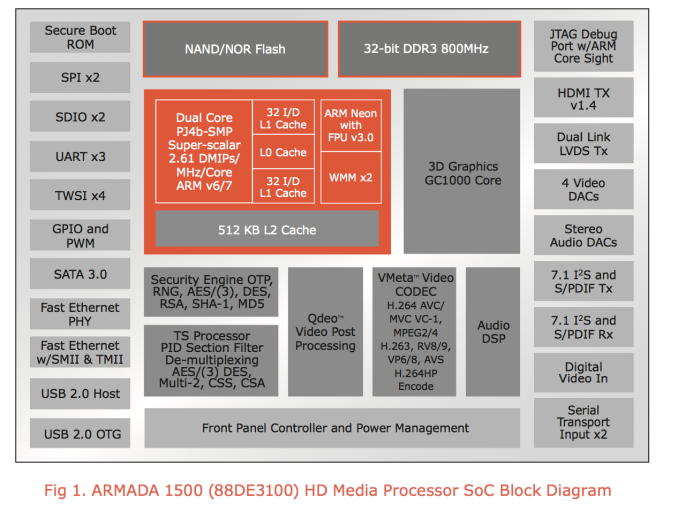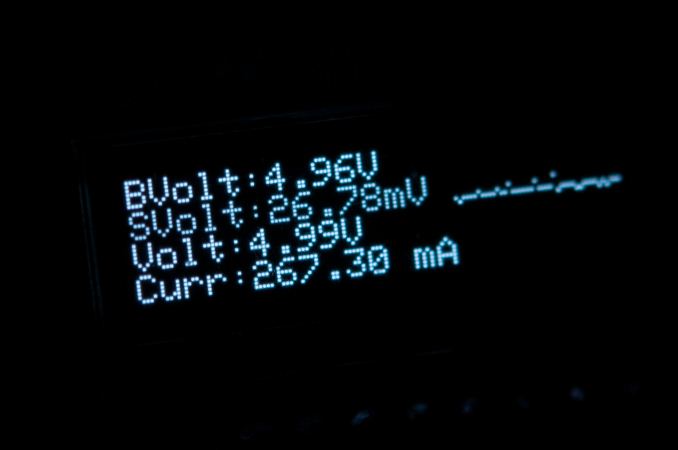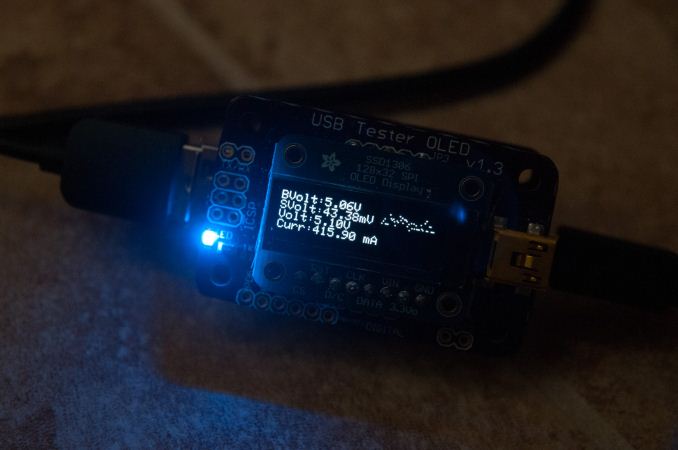Google Chromecast Review - An Awesome $35 HDMI Dongle
by Brian Klug on July 29, 2013 9:45 PM EST- Posted in
- Smartphones
- Media Player
- Android
- Mobile
- HDMI
- Chrome
- Tablets
- Chromecast
Inside Chromecast
Inside the Chromecast it’s also a simple affair, I took a look at the FCC disclosure for the Chromecast which had internal images up right after the event, and noted inclusion of a Marvell 88DE3005 SoC and AzureWave NH–387 WiFi combo chip. On the backside is 512 MB of Micron DDR3L memory and 2 GB of flash. The antenna for the WiFi combo is printed on the PCB off to the side, there’s no diversity or anything special, just a single PCB antenna.
The Chromecast supports just 802.11b/g/n (2.4 GHz), sadly no 5 GHz is included. That’s somewhat alarming if you’re in an area where 2.4 GHz is congested to the point of being unusable (just about any major urban area), and even more so since streaming applications demand a good QoS for good experience. I have no doubt that 2.4 GHz-only was chosen for cost reasons here, but I would’ve gladly paid $5–10 more for 5 GHz and eliminating that as a potential problem.
Best I can tell, the Marvell 88DE3005 is a cut down, perhaps binned version of the 88DE3100 SoC that has shipped in Google TV for some time now with just a single CPU core enabled. Some hacking done by enthusiasts has confirmed from /proc/cpuinfo that only a single core is visible to the OS, and that the Chromecast also interestingly enough really runs Android, not Chrome, and includes a build.prop file like you’d expect an Android device to.
Google no doubt chose this Marvell SoC in part thanks to the presence of hardware VP8 decode, and I have no doubt YouTube on the device brings down VP8 versions of videos when available, and the Chrome tab to Chromecast streaming uses VP8 as well. Of course there’s hardware decode of H.264 High Profile onboard as well for Netflix and other YouTube videos without VP8 versions. Google lists the supported codecs on their Google Cast SDK page.
Back when the power situation was unknown and still steeped in conflicting information about HDMI power delivery (again, it can't be powered by MHL-HDMI ports which can supply up to 500 mA at present spec, and HDMI doesn't supply enough current, just 50mA), I set about measuring power. I have a handy USB power meter which sits in line with devices and shows a small graph as well as data on its OLED display. I stuck the meter in line between the microUSB power supply provided with Chromecast, and the Chromecast, and measured around 420 mA at peak while decoding either a 1080p Netflix stream or Chrome tab streamed to it, and around 250 mA at idle. All of those are at 5 V, so at peak the Chromecast draws around 2 watts, at idle around 1 watt. Of course if the Chromecast is plugged into your TV’s USB port, chances are when the TV is off power is cut to USB, so idle really is completely off. It’s obvious to me that Chromecast definitely leverages that hardware decoder for both VP8 and H.264 processing to get these very low power numbers.


-004_575px.jpg)
-003_575px.jpg)











105 Comments
View All Comments
kirsch - Monday, July 29, 2013 - link
The licensing implications of Tab casting are interesting to me. Hulu (or more likely Hulu's content providers) cannot be happy and may force Google to somehow disable Chromecast on their website. Or I can dream, and maybe they will realize the futility of making an artificial distinction between clients and will stop the BS.savagemike - Tuesday, July 30, 2013 - link
Hulu et al have a bit of a problem though. Since the tab casting is mirroring it never sees the Chromecast directly and should have no way to see anything but the Chrome browser. The Chrome browser is among the most popular in the world.So Hulu and the rest have one play. They can stop their sites from being visible on one of the most popular browsers in the world. Even if they decided to make that play thinking they'd drive people off Chrome to other browsers Google (or whomever) could quite easily make a similar extension for Firefox which also plays well with WebRTC. So hulu would probably end up having to block Chrome and Firefox. That would be insanity for any web company.
In any event I would imagine a firefox extension to work with Chromecast will show up sooner or later.
DesktopMan - Tuesday, July 30, 2013 - link
The license restrictions on those services sound insane. Chrome tab casting is pretty much wireless HDMI, does Hulu not work over HDMI in clone mode? What about Miracast?edwpang - Monday, July 29, 2013 - link
The USB power meter is pretty useful. What the brand name of it?Thanks
Ritup - Wednesday, July 31, 2013 - link
You can find it here, a good friend designed that.https://www.tindie.com/stores/FriedCircuits/
Donkey2008 - Monday, July 29, 2013 - link
To the author - Was "Molybdenum" the name of the device stock or did you come up with that name for it? I have a reason for asking.Brian Klug - Tuesday, July 30, 2013 - link
Came up with it, the first one I named Chromey, the second one Molybdenum since, well, periodic table and stuff, I dunno.-Brian
Donkey2008 - Tuesday, July 30, 2013 - link
Cool. I work for a company that does moly exploration and I rarely find anyone who knows what molybdenum is or even how to pronounce it (mole-ib-denim).For those who don't understand, molybdenum is better known as "Chrome Moly" (thus the Google reference). Fun, off-topic fact of the day. Derp.
Oh, and Skynet...LOL.
Death666Angel - Wednesday, July 31, 2013 - link
CroMo steel is used pretty regularly in the bike industry. :)bountygiver - Tuesday, July 30, 2013 - link
According to what google has been doing, a first party chromecast app for windows 8/RT is not likely to come, but I hope someone can make one as it can be really useful if it is integrated in windows Share/PlayTo(on win8.1).